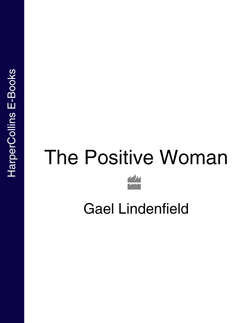Читать книгу The Positive Woman - Gael Lindenfield, Gael Lindenfield - Страница 36
Male/female differences
ОглавлениеResearch has proved that the average man’s overall IQ score is indistinguishable from that of the average woman. This may seem like cold comfort because the reality is that, although we have the innate potential to be on an intellectual par with men, very many women still do not have comparable thinking skills.
In the man’s world that we were born into and reared in, women have indeed lagged intellectually behind men because we have lacked the opportunity, motivation and inclination to develop and maintain our brains in top working order. Many of us were not encouraged to pursue higher forms of education, even though no one disputed the fact that we were as, or even more, able than the males around us. How many brain cells do you need to look sexy, wash nappies and bake bread? Until very recently it didn’t make economic sense for the patriarchal society to educate us! Perhaps many of you, like myself, have experienced direct discrimination within the education system or from your parents. It may help if I tell some of my own story.
When I was 15 years old and in the middle of my ‘O’ level course, my family found themselves under severe economic strain. All four children were at private day schools to which my father had sent us two years earlier in an attempt to give us the best education he could possibly afford. I loved my school and was thriving both academically and socially. The liberal and encouraging atmosphere was helping to heal the wounds of a childhood mostly spent in repressive authoritarian children’s homes. I was heartbroken when I was told that the family’s economic difficulties meant that my sister and myself would have to leave our schools and join the state system. The pain of leaving my friends and having to attend a school which I knew would give me an inferior education was perhaps soothed by my sprouting social conscience, but I know the ignominy of having my educational interests placed behind those of my brothers damaged my self-esteem and directly contributed to my under-achievement at school. For years I put people with degrees (and clever people such as writers!) on giant pedestals. It was not until I reached my mid-thirties that I began to have a glimmer of my own thinking potential. I dread to think of the number of cells that must have died of starvation in my brain! The fact that I have heard many similar ‘hard-luck’ stories from women throughout my life has not assuaged the hurt, but it does fuel my determination to help women take positive steps to recoup their educational losses.
Of course the situation is now changing fast and my daughters are living in a very different educational world, but I know that many women are still hampered, not just by lack of opportunity but by deep wounds to their intellectual self-esteem and the general negative images of ‘blue stockings’ and girls in glasses rooted deep in our collective unconscious. We certainly have a right to be angry about such blocks and handicaps but it would be naïve to think that having a good shout about the injustice will give us adult women enough of the opportunities we need and deserve, even if it may help our daughters.
